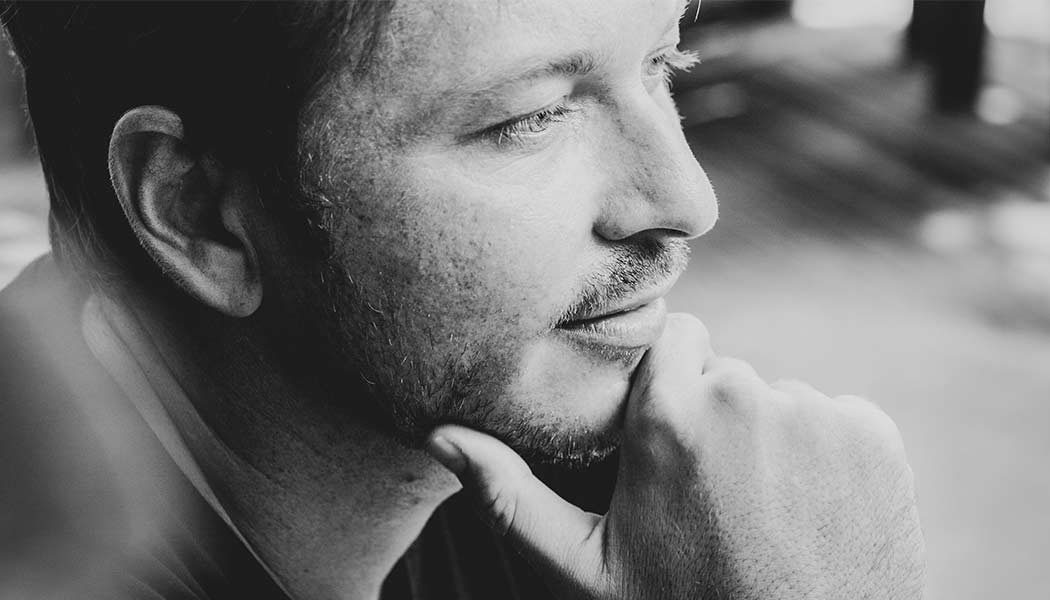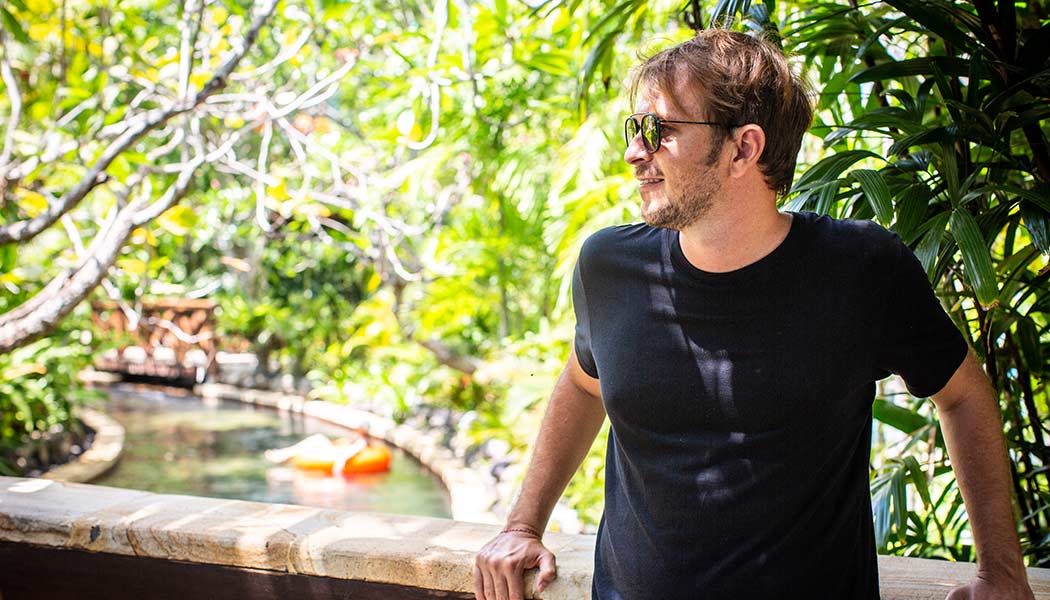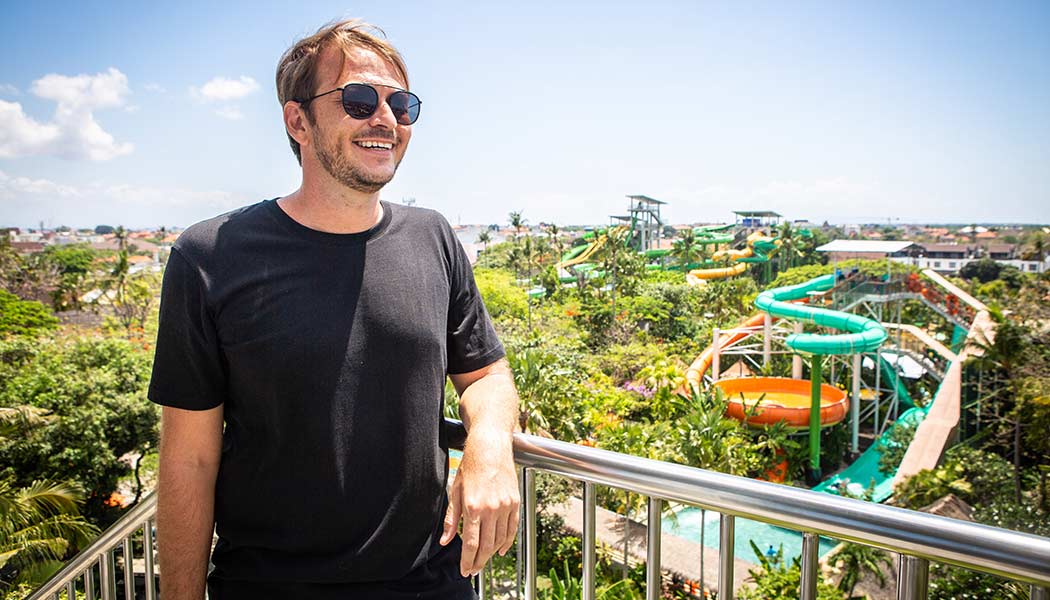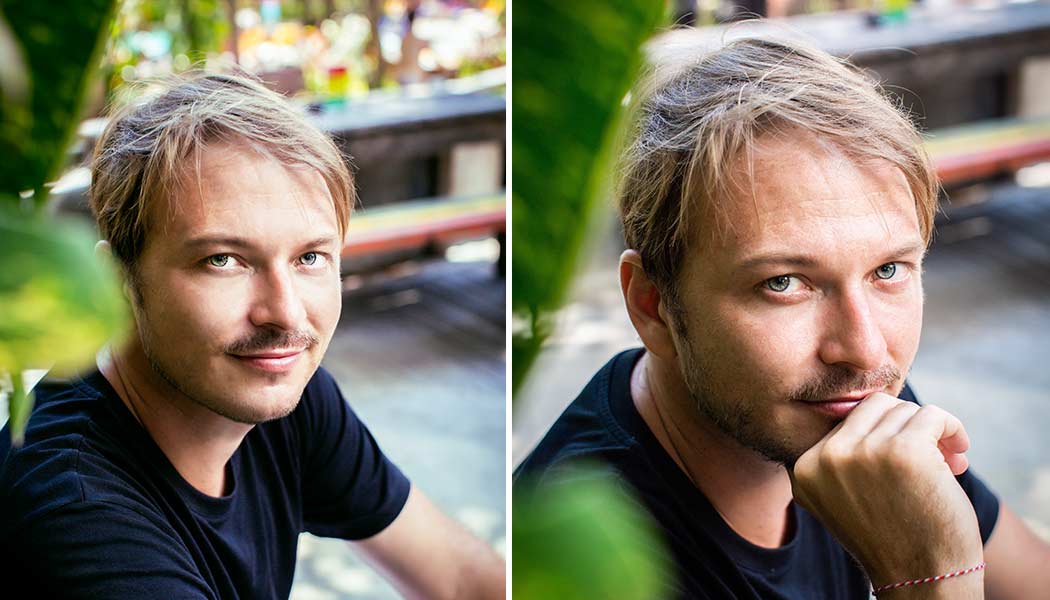Luiz Sanchez meets Sayan Gulino, CEO of Waterbom, to talk about the making of his recently released documentary highlighting Bali’s water plight. Photos by Dasha.
“It’s taken us more time than it should have to produce a 30-minute documentary,” Sayan begins when we sit down to talk about the making of Balancing The Waters, a documentary highlighting Bali’s water plight. “We had this team based in New York who came to Bali to try and film it, but because of their lack of connection to the island they saw everything through the lens of a tourist. It lacked a certain depth and realness to it. We showcased it to a bunch of people and I felt they weren’t getting it or feeling it, so we scrapped the majority of what they put together and using the same footage we re-edited it to tell a better story. Finally, with a lot of hustle and finding the right people to fill the right gaps we persevered. Now it is finally put together and serves its purpose.”
And that purpose, as Sayan puts it, is to “start a conversation. Waterbom has a responsibility, being rated the number one water park in Asia five years in a row. When others see we are getting this level of attention they will start listening.”
The truth is that sustainability in recent years has become trendy in large part because it has been shown to be profitable. As saving the environment begins to correlate with increased profits, more and more companies and governments will stand behind sustainable practices, and for Sayan the motivation is not what matters as much as the outcome. “This documentary is targeted at individuals as well as businesses,” he said. “Whatever their intentions, sustainability can drive down costs. From a marketability standpoint sustainability raises the awareness and reputation of your brand. If you genuinely care about the issue then being sustainable allows you to coexist with the planet we call home. Not everyone cares about the environment, but they care about money.”
The documentary hones in on the subak, a Balinese irrigation system dating back to the 9th century. The subak forms a central part of traditional Balinese life philosophy known as the tri hita karana. “We wanted to highlight how ancient systems worked in harmony between humans, nature, and spirits,” Sayan explained. The tri hita karana “was the stepping stone to try to get Waterbom sustainable. Tri hita karana is so real, it is not just a daydream. It has been voiced in various economic forums around the world and if it is getting that amount of attention its because people are realizing that such a key component has been overlooked.”
“Harmony among people, god and nature, that is it, that is where we live,” Sayan continued. “It’s so realistic and I believe the ethos. You need to work with your peers, the spirits and nature and if you don’t work with any of those three components you will fail.”
Many of the people that have worked with Sayan to make Waterbom carbon neutral and on this documentary are expats who grew up on the island. “In terms of expats, we are lost children,” Sayan explained. “We don’t biologically belong here, but it is our home and what we saw was a paradise. Then we saw a paradise in front of our eyes just degrade. If you have no soul then maybe you will let it pass you by, but if you have a soul it touches you. Some people may only be upset but it affects you. We grew up without gadgets, playing in the grass, rivers, and ocean. That was our escape; our playground before Waterbom, before iPads. We have such a strong bond and connection with nature that we feel so loyal to it and we don’t want to see this paradise destroyed.”
This is likely to be Sayan’s only foray into documentary film making for now, as he focuses on continuing to improve Waterbom and expanding his own portfolio. “I wanted to be that guy with the power to raise awareness,” he said. “The next step for me is to ensure if I ever engage in future businesses that people know this is my mantra, my ethos, and that I will only be engaging with sustainable businesses.”
So what can we learn from Bali’s experience and relationship with water? Beyond the tri hita karana, Bali functions as a test case for other parts of the world. “If you went to Paris or New York 10 years ago you would have seen one or two new shops or building being built, but Bali has been undergoing rapid growth and development,” Sayan explained. “Bali is the mistake that we can all learn from.”
Balancing The Waters has been submitted to film festivals around the world.




